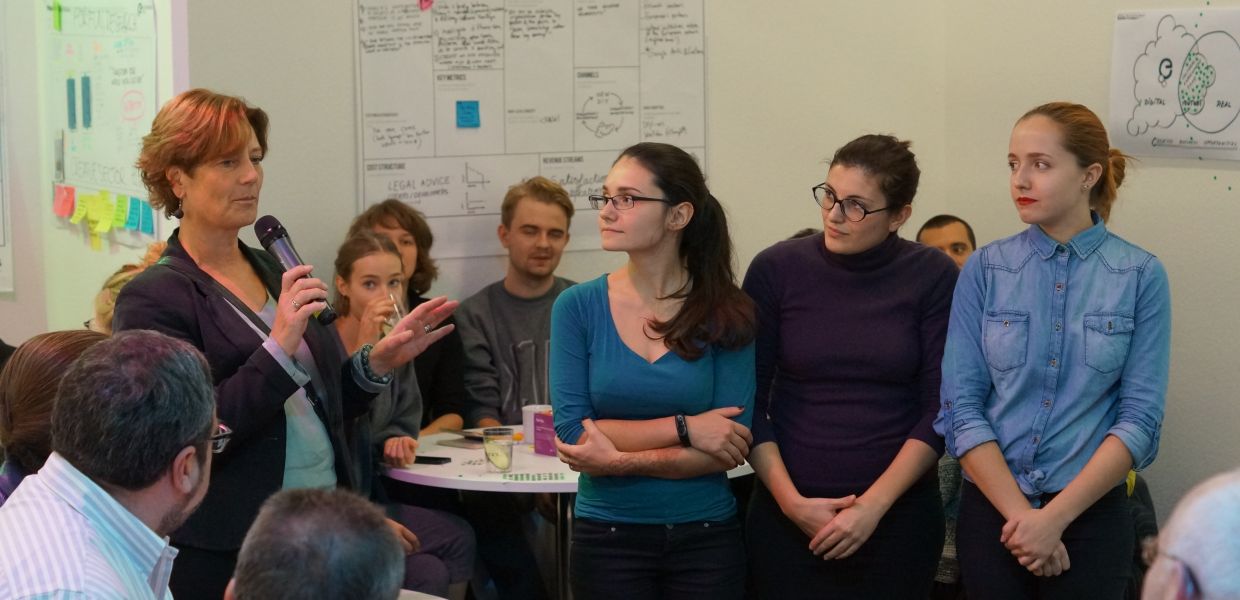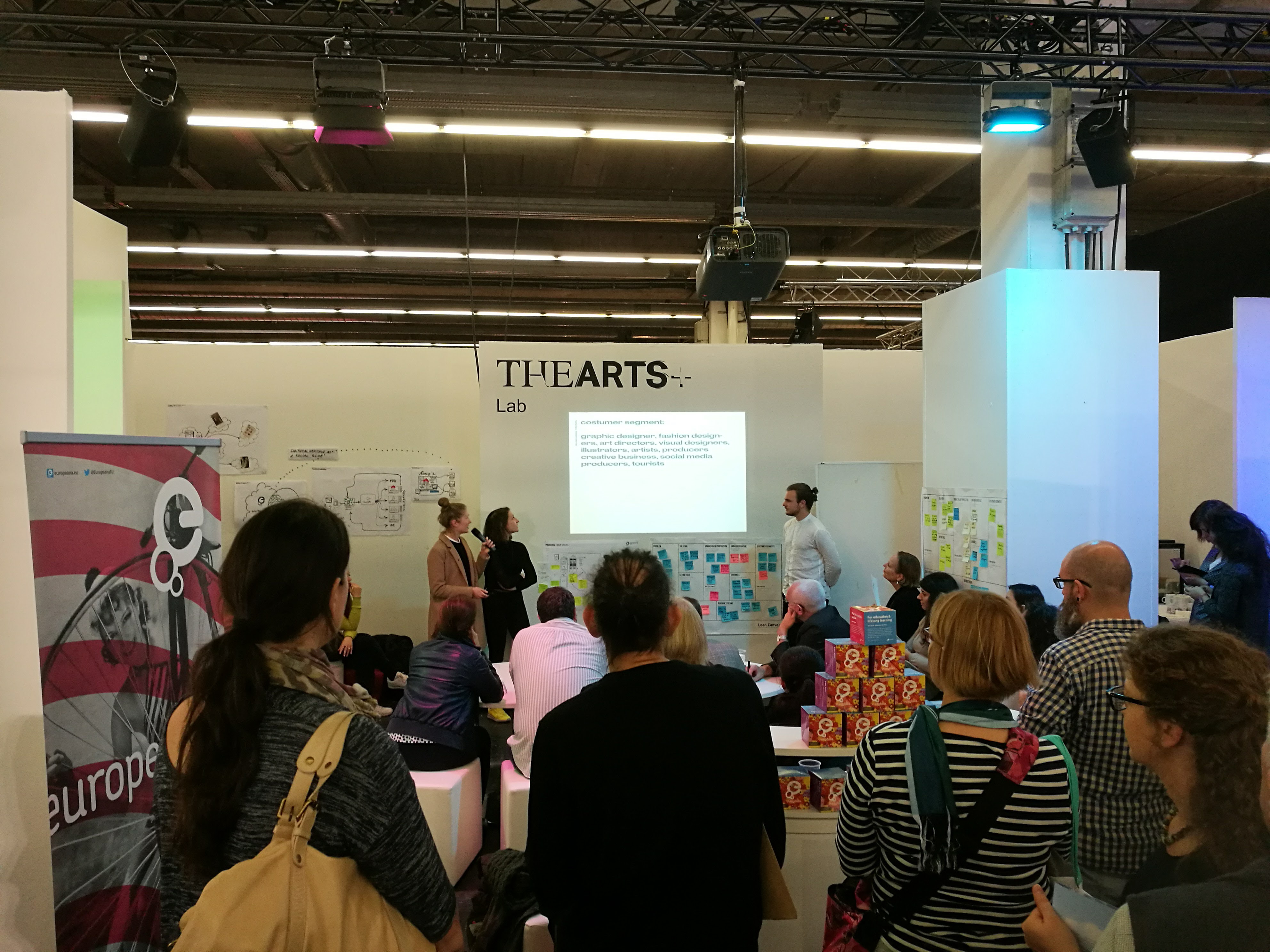Europeana at THE ARTS+ Fair: promoting new business models using digital cultural heritage

For five days, from 19 to 23 October, Frankfurt was the centre stage for business creativity during THE ARTS+ Fair: the first edition of an annual international event for creative industries — a side event of the Frankfurt Book Fair. Europeana partnered with THE ARTS+ to host an interactive and interdisciplinary workshop dedicated to exploring the potential of the cultural and creative market in the digital age (THE ARTS+ Lab). We invited 19 design students from Germany, the Netherlands, Italy, and Poland to develop original projects reusing Europeana content. We were excited to see five early-stage prototypes emerge as a result of this event.
During the Fair, we took the opportunity to meet with education publishers from across the world to explore potential interest in using the Europeana API and manual download functions to integrate Europeana content into digital educational resources. We were met with enthusiasm by education publishers and innovative digital educational resource providers, who quickly recognised the educational potential of our diverse collections. This includes publishers and educational resources like Itsi, Capstone Publishing, NETEX Learning, and MM Publishing. We’re now in the process of following up after numerous meetings. Some digital educational resources like Itsi are already in the process of integrating our API.

Design students in a workshop during THE ARTS+ Fair. Europeana Foundation, CC BY-SA.
We also captured the attention of publishers, interested passers-by and creative industry professionals with the installation of the #BigArtRide at THE ARTS+. A result of the #Europeana280 campaign, the #BigArtRide is a practical example of Europeana content reuse. Created by the Dutch design studio DROPSTUFF.nl, the #BigArtRide invited fairgoers to explore European art and culture by cycling through a virtual city filled with Europe’s shared cultural heritage. This art installation lets users experience a bike ride by means of a virtual reality (VR) Oculus Rift headset.
Europeana Labs workshop: five prototypes in three days
The workshop “Europeana Labs: The unexploited content of cultural institutions” lasted three days and guided design students through the process of developing product ideas to the process of preparing and presenting a pitch to business investors. On the first day, a co-creation workshop led by the Spanish consulting company Platoniq invited students to experiment with Europeana data using specially created Co-creation Made Agile methodology. They finished the day with a cut-throat elimination of the weakest prototype ideas, focussing instead on the development of the most robust five business proposals.
The second and third day were led by Media Deals, a pan-European investor network. First, students took their five business proposals into a business modeling workshop and were introduced to the Lean Canvas methodology. This helped them turn their idea into viable business models. On the third day, a pitching skills training with presentations and instant feedback coached participants on how to best present their projects to financiers.

Participants receive feedback during THE ARTS+ Fair. Europeana Foundation, CC BY-SA.
This learning process concluded with students pitching their ideas at an investor forum that was open to the public. Design students presented their projects to a jury of selected investors and business experts and to many interested passers-by at THE ARTS+. The investor panel evaluated the ideas and provided them with constructive feedback to help them develop their ideas into a market-ready proposition. The jury members were: Eugene Smyth (Allied Irish Banks Seed Capital Fund); Cathrin Frisemo (Nordic Female Business Angel Network); Xavier Huerre (Interim Executive, Business Consultant, Angel Investor); Dieter Staib (Education, BBA, MBA at ESADE Barcelona).
Among the five pitches, Fantasia, an app developed by a student group from Italy and Poland, was selected as the winning project. In a concise and engaging pitch, the students proposed a prototype that aims to create patterns for fashion designers from high-quality content made available through Europeana. As a reward for their great project, Fantasia will attend next year’s edition of the Europeana Fashion Conference.
What’s next? After five busy days, we will be following up with the contacts we made and looking into how we can increase the educational and creative re-use of our content through partnerships with creative industries and educational partners across Europe and beyond. Stay tuned!
For more, check out our Flickr album and our Storify on THE ARTS+.
